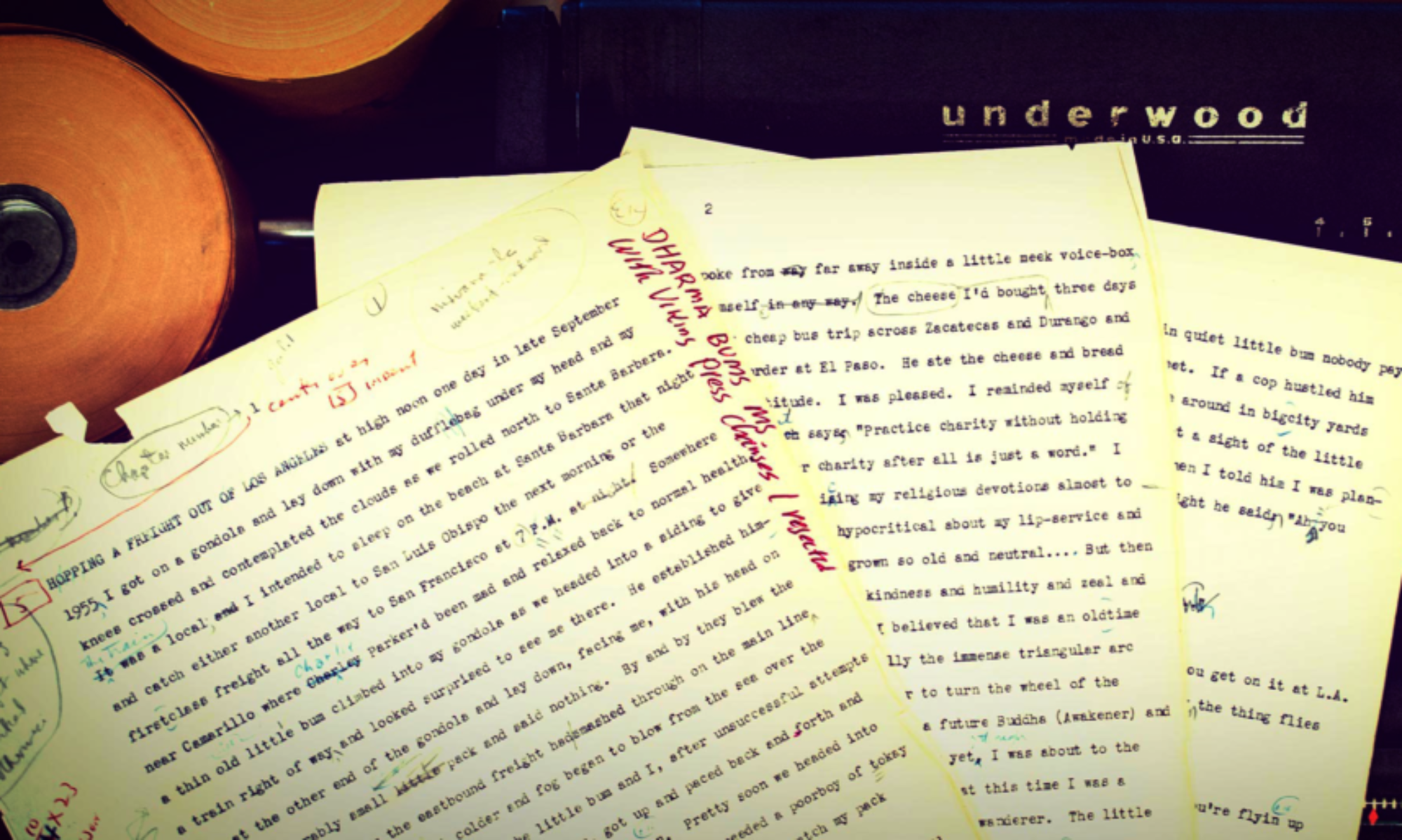
| News from the Chair Dear Students, Colleagues, and Friends – both near and far: The English department at Emory may be doing most of its work remotely, but we have managed to do quite a bit collectively over the past few months. And faculty and students have continued to make news with their accomplishments in research, teaching, publication, and service. Here is some of what we’ve been up to in these long and strange months of 2020. Curricular and Teaching Initiatives The summer’s protests in support of the Black Lives Matter movement inspired us in the department to think critically about what we teach and how we teach it. As a discipline, literary study in English has for too long been tied to a Eurocentric canon that privileges dead white (and usually male) authors. While our own curriculum features a much more diverse array of writers and traditions (including a range of courses in African American, Black British, Latinx, Native American, African, Caribbean, South Asian, and Asian American literatures), you wouldn’t know this from looking at our major requirements or at many of our standard course descriptions. Because we passionately believe that the study of literature and culture is central to understanding the world around us in its full diversity, the department has been focused this semester on crafting a curricular proposal that will reflect literature’s amazing capacities to help us view life from perspectives radically different from our own. Stay tuned! We have also initiated two new fora for sharing ideas more broadly about teaching. Graduate student Emily Banks is leading an Anti-Racist Pedagogy reading and action group, in which faculty and grad students have met to share how our own teaching can contribute to a broader effort to dismantle racism. If you are interested in participating or learning more about this effort, please contact her at emily [dot] a [dot] banks [at] emory [dot] edu. And Writing Program lecturer Melissa Yang is now leading a series of mid-week teaching conversations, featuring faculty, post-docs, and graduate students sharing ideas, questions, and experiences on topics such as collaboration in the classroom, stimulating play and inventiveness in on-line teaching, and community and public engagement through coursework. For more information or to be involved, please contact melissa [dot] yang [at] emory [dot] edu. Another departmental initiative has involved the power of poetry to speak to our times. Last spring, Prof. Geraldine Higgins launched a Pandemic Poetry project that invited faculty, staff, and students to share poems that could help us to understand our current predicaments: isolation, fear of contagion, separation from loved ones, lost opportunities, and our hopes for a better future. This semester, we have continued that project, with student leadership from English and Human Health major Kate Appel). We have also launched a new Black Poetry at Emory series, supervised by Prof. Jericho Brown, with graduate student leadership from PhD student Ra’Niqua Lee. Check your email inbox for periodic newsletters that share poems and reflections on their deep relevance to our contemporary lives. If you would like to contribute an entry, please make a submission. On the subject of teaching, most instructors had an unwanted initiation into the world of on-line teaching last spring. Over the summer, we were fortunate to have time to learn more about the opportunities for effective online pedagogy, thanks to College-designed workshops led by two wonderful graduate students in our department, Ariel Lawrence and Tyler Tennant. If our classes have gone better this fall (and we think they have!), much of the credit goes to those two. Faculty and Graduate Student Accomplishments, Arrivals, and Accolades Creative writers at Emory are getting used to their professors gaining major recognition. The pandemic has forced us to continue waiting for the time when we can all celebrate Prof. Jericho Brown’s Pulitzer Prize for Poetry in person, and now we have another reason to celebrate: he has been named the Charles Howard Candler professor of English and Creative Writing at Emory. Our other Pulitzer-prize winning colleague, Prof. Hank Klibanoff, has continued to win major awards for his ongoing podcast Buried Truths, in which he (and a number of Emory students) have uncovered stories about Civil Rights-era cold cases. Last year, the podcast garnered a Peabody award, and now the second season has earned a Murrow Award in broadcast journalism – two of the highest awards in the field. Prof. Heather Christle’s gorgeous book about the cultural and psychological meaning of tears, The Crying Book, has been honored with a Georgia Author of the Year Award in the category of memoir. Prof. Tayari Jones’ monumentally successful novel An American Marriage continued to rack up awards, including being selected as a finalist for the International Dublin Literary Award. And Prof. Tiphanie Yanique’s “The Special World” has been included in the prestigious Best American Stories 2020 volume. This fall, we welcomed Prof. Nicole Guidotti-Hernandez, a specialist in Latinx literary and cultural history, to the department. She has made an immediate impact in the classroom with her new course on Latinx literary history, and she has also contributed powerful commentary on contemporary manifestations of voter suppression in Ms. magazine. Look out for the publication of Prof. Guidotti-Hernandez’s fascinating new book, Archiving Mexican Masculinities, coming out from Duke University Press next spring. Several other faculty members and graduate students stepped out in public with their work. Our director of undergraduate studies, Paul Kelleher, brought his deep knowledge of eighteenth-century literary to bear on the pandemic, with an article in the Washington Post on what we might learn from reading Daniel DeFoe’s A Journal of the Plague Year. The current plague, of course, has been on all of our minds, and several of us have published about how it has affected our classrooms and our personal lives. Prof. Tiphanie Yanique reflected on the challenges of parenting a Black child during the time of pandemic and protest in an essay in the Times Literary Supplement. https://www.the-tls.co.uk/articles/black-lives-matter-protests-atlanta-essay-tiphanie-yanique/. And Prof. Tayari Jones published this essay about race, vulnerability, and intimacy in the Guardian: https://www.theguardian.com/world/2020/jul/05/planet-virus-seven-novelists-from-around-the-world-on-living-with-the-pandemic Reflecting on how the pandemic has affected our teaching lives, Prof. Sheila Cavanagh published an account of how she rapidly adapted her spring course, “Shakespeare in Text and Performance,” to take advantage of a wealth of online materials – especially performances and other resources related to Shakespeare in Prison programs: https://www.escj.org/early-modern-classroom?page=1. On the subject of literature and prisons, recent Emory PhD alum Stephanie Iasiello has begun a position as Director of Education for the Alliance for Higher Education in Prison. I myself collaborated with a group of wonderful graduate students – Sophia Leonard and Makenzie Fitzgerald of English, and Victor Velázquez Antonio of Hispanic Studies – on an article that grew out of our experience as students and teacher in a new Public Humanities graduate seminar. The research collaborations we fostered between Emory and several partners – including the Alliance Theatre here in Atlanta – were all disrupted by the pandemic. Yet the experience pointed toward some hopeful opportunities for re-imagining graduate education, which we wrote about for the journal American Literature. If you’d like to see an advance copy of the article, please contact me at breiss [at] emory [dot] edu. Another public-facing departmental initiative is the journal Post-45, a leading venue for the analysis of contemporary literature and culture whose production is now housed at Emory. Under the direction of Prof. Dan Sinykin, the journal’s born-digital archives are now housed at Emory’s Rose Library. Profs. Sinykin and Prof. Lauren Klein will be holding a conversation about their own recently published books (celebrated in last spring’s newsletter) and their work in developing the exciting field of digital humanities at Emory on Nov. 16 at 4 p.m. More information here. Several of our graduate students have had work featured in public venues. Tesla Cariani was featured for her work on the Georgia Coast Atlas in the article “Georgia Cost Atlas: A Portal to Hidden Stories,” and Joe Fritsch has a lovely new essay on object-oriented poetry and visual art in Public Books. In addition, Joseph Fritsch and Jareema Hylton have been selected to attend the 2020 Podcasting the Humanities Winter Institute hosted virtually by the National Humanities Center and the Digital Humanities Center of San Diego State University. We’re looking forward to seeing the work they create there! For inspiration about where your Emory experience may take you, check out this recording of our recent panel featuring the exciting career paths of four undergraduate alumni: Randall Slaven, MBA, MPH, Senior Director at the Carter Center; Adrian Tonge, Senior Analytics Executive at Accenture; Nina Burris, George Washington University Law School Student; and Bernadette Davis, Founder and CEO at Bernadette Davis Communications. We’d like to hear more from undergraduates about your accomplishments, especially any exciting and surprising opportunities that have come your way as a result of our strange new circumstances. Please send them along to eric [dot] canosa [at] emory [dot] edu. Kemp Malone Lecture Last week, the Kemp Malone Committee hosted Fletcher Professor of English Literature at Tufts University Lee Edelman for a three-event series. On Thursday, October 29, Professor Edelman presented a workshop for Emory graduate students on the process of taking research from a dissertation to a first book. On Friday, October 30, Lee Edelman gave his keynote lecture “Queerness, Afro-Pessimism, and the Return of the Aesthetic.” After the keynote, Lee Edelman engaged Emory Professor Calvin Warren in a rousing discussion on Afro-pessimism, moderated by Emory Professor Elizabeth Wilson. By going virtual, the 2020 Kemp Malone Lecture Series was able to challenge and inspire an unprecedented number of attendees from the Emory community and beyond. Be well, all – and if you have ideas or feedback about departmental initiatives, please let me know! Benjamin Reiss Samuel Candler Dobbs Professor Chairs, Department of English breiss [at] emory [dot] edu |

